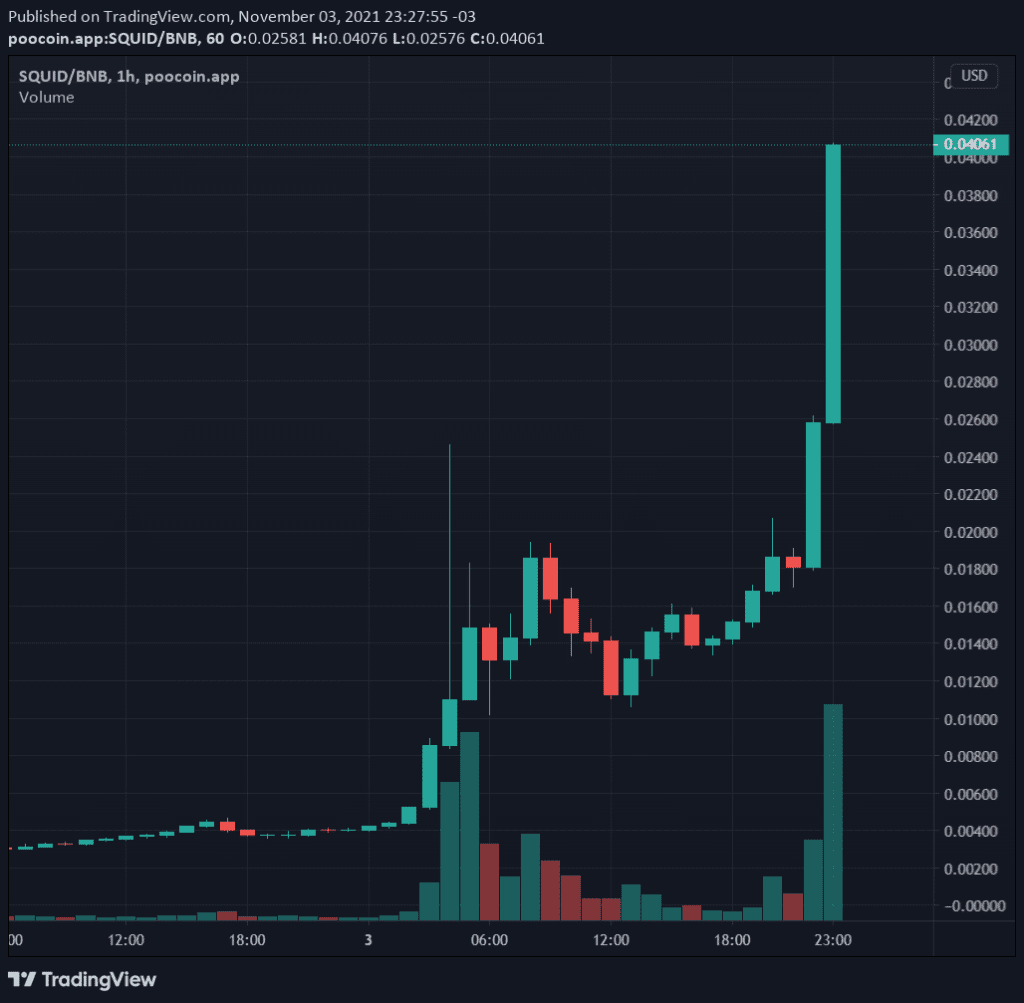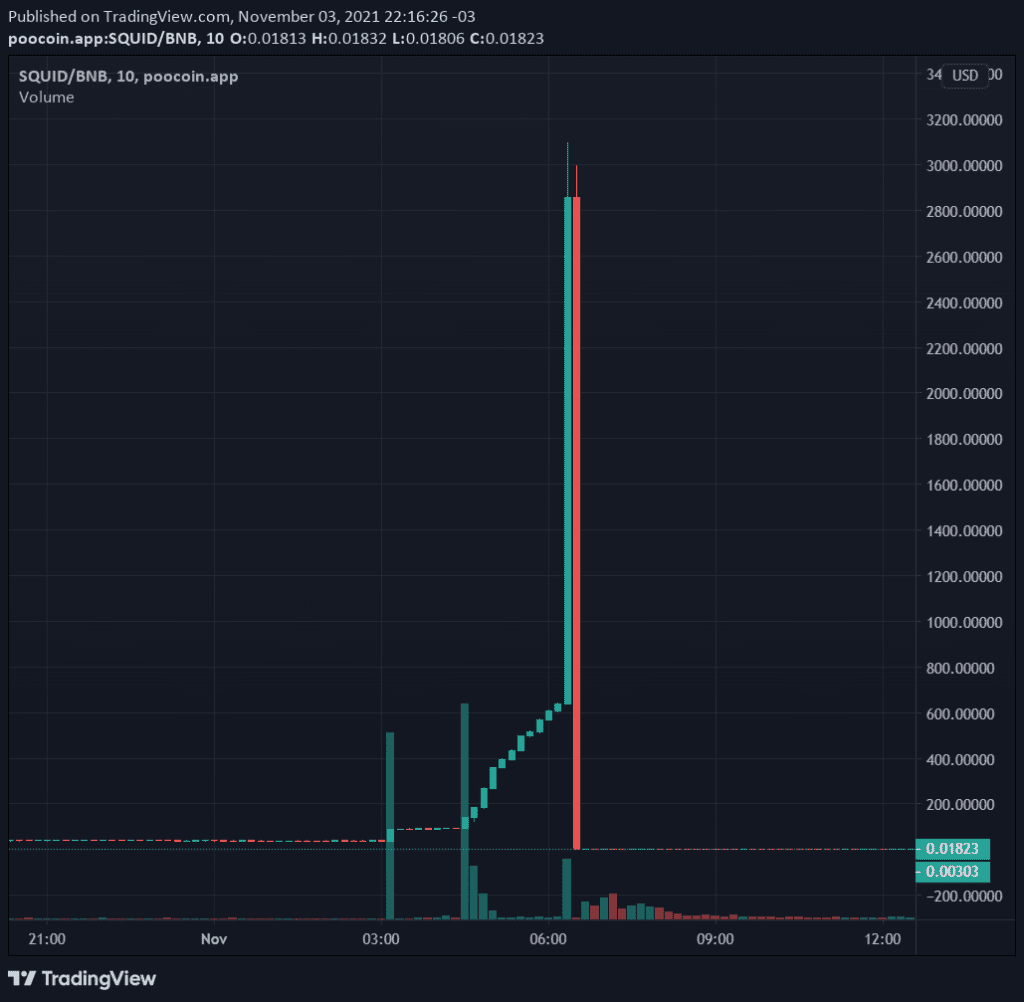The masterminds behind the Squid rug pull are probably enjoying the good life after stealing more than $3 million in a matter of seconds. But Binance is doing everything it can to make sure their party is short-lived.
Binance, the largest cryptocurrency exchange platform in the world, is tracking the scammers. According to Barron’s, an intelligence team is auditing the blockchain, gathering information to hand over to the authorities and help apprehend the scammers.
Binance Wants Scamers to Pay
A Binance spokesperson assured that these strategies have become very popular in the crypto ecosystem recently and that they were working to trace the funds and provide the authorities with as many leads as possible to identify the perpetrators.
“(Binance) is blacklisting addresses affiliated with the developers and deploying blockchain analytics to identify the bad actors.”
The platform explains that fraudsters used the cryptocurrency mixing service Tornado Cash to obfuscate their identities.
Tornado Cash is a decentralized transaction anonymization service that runs on Ethereum. Users send tokens, and the platform conducts various internal transactions to prevent funds from being traced and associated with a particular identity.
The developers of Tornado Cash have not spoken out on their social media about Binance’s accusations that their platform is being used by criminals. Similarly, Binance did not disclose whether it was working with any specific agency but assured that it would hand over the information to the “appropriate jurisdiction.”
Binance has a history of fighting crime. Back in June 2021, it revealed that it assisted authorities in identifying and apprehending the members of a criminal gang known as FANCYCAT — a hacking group responsible for ransomware attacks demanding payments in cryptocurrencies.
The Rise and Fall of the Squid Game Token
As Cryptopotato previously reported, $SQUID was the cryptocurrency of a project inspired by the Netflix show Squid Game.
According to the project’s whitepaper, participants would compete in several games, and whoever won would walk away with a unique but very juicy cumulative prize.
To play, people had to pay a registration fee, but the token appreciated so much (over 100,000%) that at its peak, the combined entry fees were near $500K.
However, a few days after the project was born, the community went into alarm at reports that users were unable to redeem their proceeds or sell their tokens.
Days later, a message in the Telegram community would mark the token’s death. Bear with us and pay no attention to the grammar:
“Squid Game Dev does not want to continue running the project as we are depressed from the scammers and is (sic) overwhelmed with stress. We have to remove all the restrictions and the transaction rules of Squid Game. Squid Game will enter a new stage of community autonomy.
Sorry again for any inconvenience been made for you. If any strange starts coming out of it, ignore it. Thanks!”
From that moment, the token collapsed to almost 0 after the smart contract administrator sold all the tokens and disappeared.
But this is the Crypto-verse and some people never learn. The token is a scam, and went to almost zero. Want to see its performance during the last 12 hours? There you go:

Seems like the difference between zero and almost zero is big enough for some crazy traders to go 2X on their investments.





















